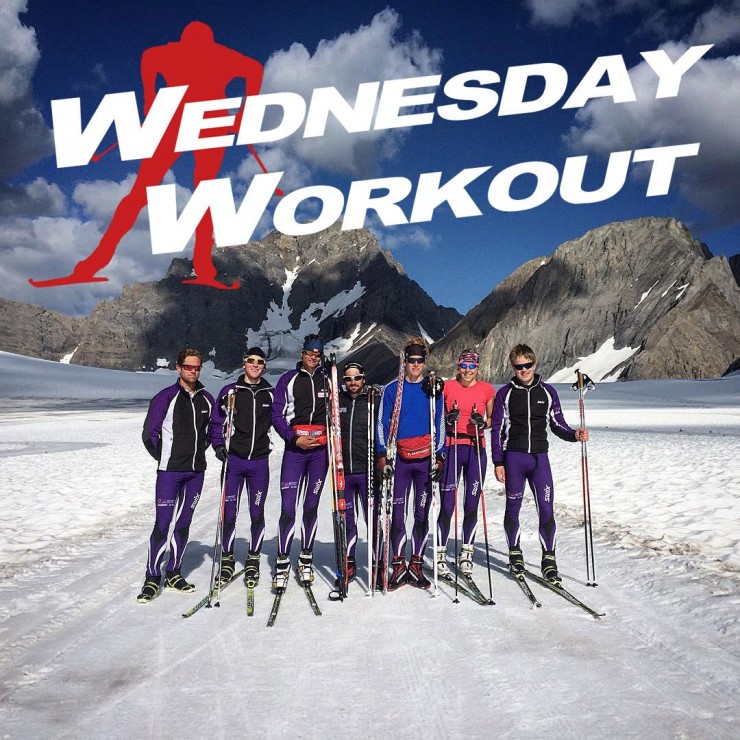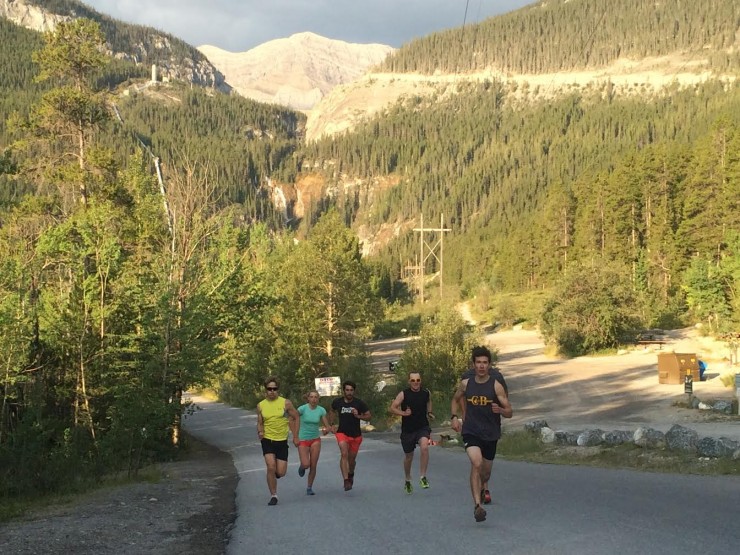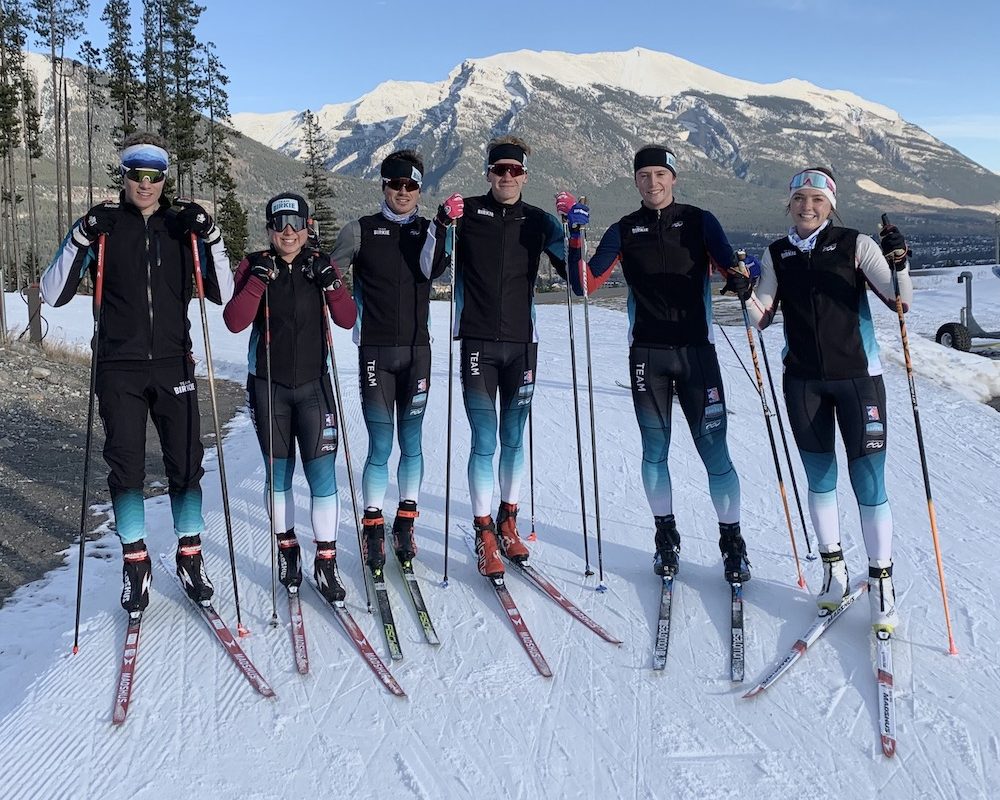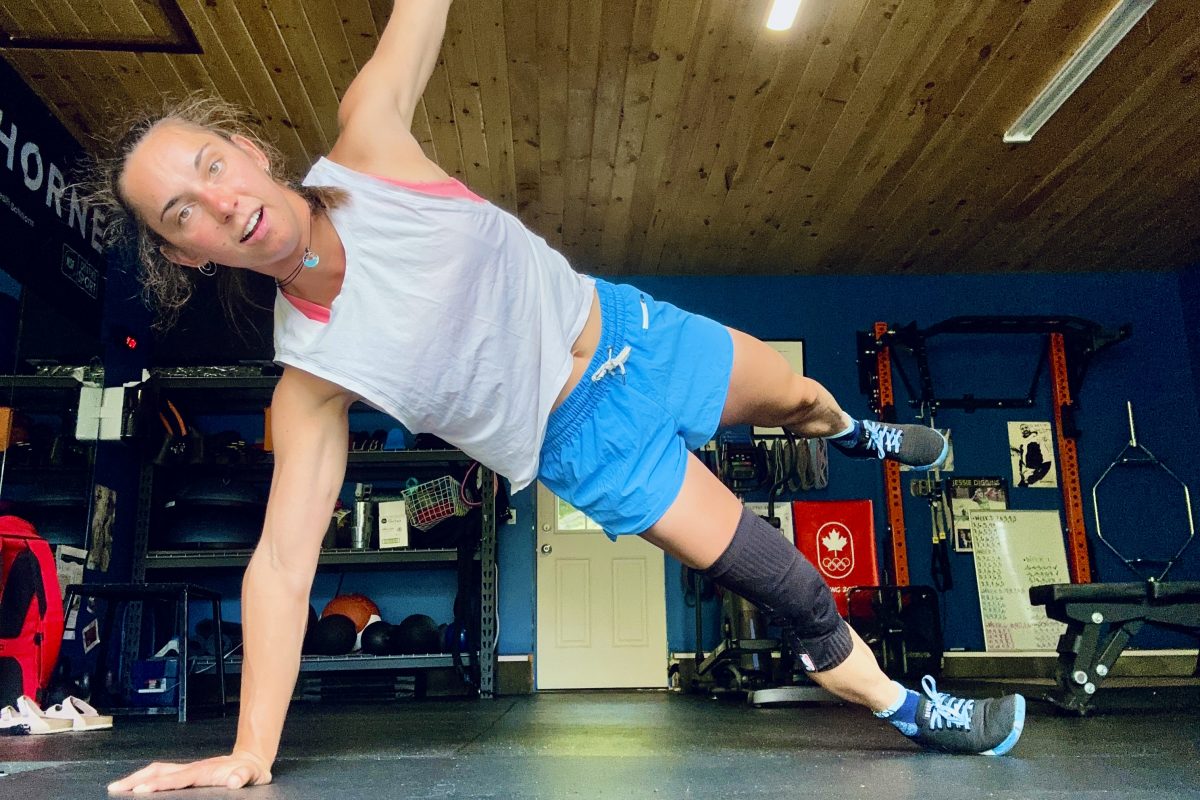
and summer-program athletes Ewan Craig and Tim Austen. (Photo: Eric de Nys)
Training camps at the Haig Glacier near Canmore, Alberta, are a staple for Canadian skiers nationwide. The glacier, operated by WinSport Canada, a not-for-profit organization based out of Calgary that aims to develop winter sport in Canada, is situated at an elevation of 2300 metres (7545 feet). The high elevation provides everyone from national- to club-level skiers an opportunity for high-altitude and high-volume training. With all this long training, recovery is of utmost importance. This recovery should be extended beyond post-workout nutrition and those afternoon siestas. Although somewhat counterintuitive, an integral part of a team’s recovery process is the post-camp intensity.
This month, the WinSport Junior XC Team had a three-week long training camp that started in Kaslo, British Columbia, with a five-day long dryland camp. The camp continued, taking advantage of the WinSport facilities at the Haig, with two back-to-back camps with a rest period in Canmore between them, fittingly called a yo-yo camp. The last day of the camp consisted of a 1.5-to-2-hour ski on the glacier (with a 40-minute hike on each side of that), followed by a two-plus-hour run out from the camp. The “finale workout” was a bittersweet athletic purgatory as the heavenly allure of ‘Rest Week’ was guarded by the 6:45 a.m. intensity session the next morning.
This intensity may seem tortuous, but the purpose behind it is to jumpstart the body after a large volume block (with little intensity) and elicit a testosterone response. This testosterone is critical in rebuilding and recovering the body after long periods of volume training.

The workout consists of 5 x 1-minute intervals with five minutes of rest. Each interval should be as hard as one can go, while still maintaining the same distance travelled (or ideally increasing it) throughout all the intervals. The team did these running up an uphill stretch of road in Canmore called Spray Lakes Road.
The workout can be adjusted to any mode one would like, although the uphill is ideal as the athlete has to push the entire way. This workout isn’t only for altitude camps either. The testosterone effect is still useful and beneficial after periods of volume at lower altitudes.
- Tip to avoid a sore body in the afternoon: Go for a short spin on a bike or walk to flush out the legs and get the full benefit of the intensity.
The workout is short and when done early in the morning leaves the rest of the day open for recovery drink consuming, reinvigorating naps, Netflix binges, planning for the upcoming rest week, and a short recovery workout to flush out the legs.
The Workout: Post-Camp Intensity/The Early Morning Pain Train
Pick terrain (uphill recommended) and mode of workout (running, rollerskiing, skiing, etc.)
Before: Warm up as usual
During: 5 x 1-minute with 5 minutes of rest between. Go as hard as possible for each minute interval, maintaining or increasing distance travelled.
After: Take a short bike ride or walk to flush out the legs. Spend the rest of the day recovering, eating, drinking and relaxing!



